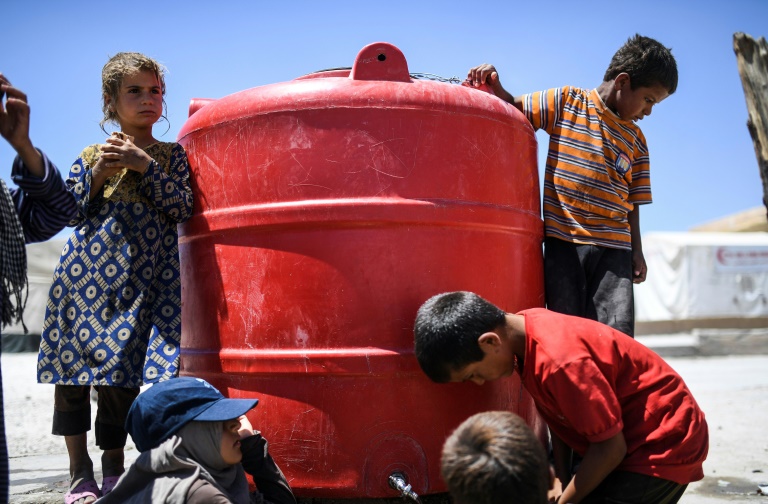Daily Lotto results: Sunday, 04 May 2025
An impatient toddler chides his mother for not being quick enough in getting him into his pair of newly-acquired boots.
Finally they’re on and he wriggles free to put the new footwear to good use: kicking his siblings and friends on the shins.
He might be a refugee, detained in a transit camp with the rest of his family, waiting to hear what the rest of his life might hold in store for him. But in that moment he is just an irrepressible little boy with new boots.
Ai Weiwei chuckles at the memory of the scene, one of many warmly humorous moments that he captured on film as part of “Human Flow”, an epic 23-country documentary essay on the global refugee crisis which required a crew of 200 people to put together and has its international premiere at the Venice film festival on Friday.
It is the kind of humanising detail that the celebrated Chinese artist finds lacking in mainstream media coverage of the migration story that has dominated news agendas over recent years in much of the world.
“It is a challenge when you are making a film,” Ai told AFP in Venice.
“You see daily news footage about the tragedies. But after you do some studies you realise that those footages are all the same. It is about shocking, it is about violence, it is about crisis.
“Our film is different. It is trying to give refugees a more historical (context), humanity and to relate to daily life: how a woman holds her child, how a child puts on his shoes, how a man is lighting a cigarette.
“All those details relate to everyone. You can understand they are human, even in these conditions that you cannot imagine.”
– Lesbos to Gaza –


Ai Weiwei believes media coverage of the global refugee crisis lacks humanising detail
Journalism, he says, has for a long time been too keen to pursue stories around the most shocking images available. And when it comes to refugees, “it has not talked deeply about who they are and what the reason is for them being where they are”.
Ai’s film takes him on a journey from Lesbos, the Greek island that was at the frontline of Europe’s migration crisis when the film was made in 2016, to Kenya’s huge Dadaab refugee camp, via the slums of Gaza, the Afghan-Pakistan border area and the battlefields of Iraq, before ending up on the US-Mexico border that President Donald Trump has promised to turn into “a beautiful wall”.
Ai has addressed the refugee issue in his work before, notably when he wrapped Berlin’s Konzerthaus in thousands of orange life vests recovered from Lesbos and by using his own body to recreate an image of Aylan Kurdi, the Syrian toddler whose washed-up corpse provided one of the current crisis’s defining images.
“I tried almost desperately to make a shout, to make my voice heard,” Ai says of his previous work.
“But I realised that is not enough for myself to understand the topic. It is so broad and has such deep history, such complexity.
“So I decided to make a film: it is a journey to show how I learned and what, and to have the possibility to show other people.”
Ai has produced several documentaries before but this is first attempt at making an essay in film on a global scale, with the final product merging text, often poetry, and still photography with the moving images.
“You don’t watch this film, you experience it,” says the executive producer, Andrew Cohen.
“It is not didactic or polemical — it does not preach or take sides. Weiwei is not a fancy reporter with an inflated ego. He is a lifelong refugee himself with a down-to-earth approach that brings us directly in to the experience.”
Ai, who has been an outspoken critic of the Chinese government, was held under house arrest without charge for three months in 2011 and banned from travelling outside China until 2015. He is now based in Berlin.
Download our app